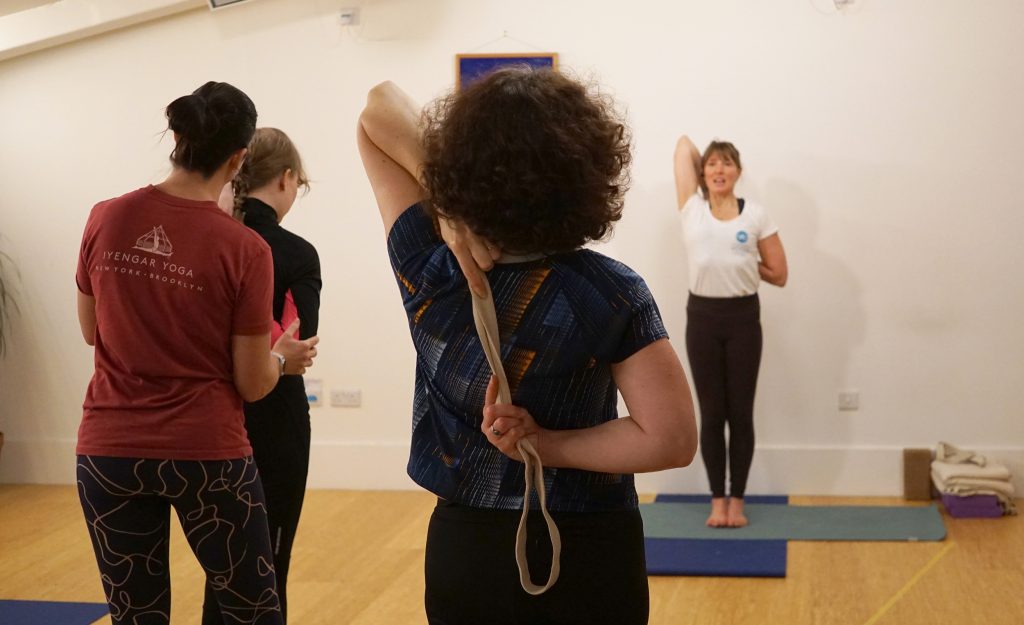
Our Beginners Class in action
Nadia Gilani’s opinion piece on yoga is an important contribution to this January’s ‘get-well’ fetish.
As the NHS crumbles and health inequalities widen, universal access to high-quality yoga services should become a priority for all local authorities interested in creating high-functioning integrated care systems. Because firstly, regular yoga practice is known to work as a path to sustainable integrated health.
Secondly, it’s relatively cheap for the public purse. It’s taught in groups (in which good teachers differentiate for individuals’ needs) so for the return in health and wellbeing, spend-per-person is peanuts compared to costs associated with long-term health issues that yoga is proven to both treat and prevent. It also provides experiences of belonging and connection that reduce loneliness and isolation, identified as a major stress-factor on primary care.
Gilani’s article is a call-to-action for all yoga teachers to make community outreach a priority. I agree, but would go further; everybody should have access to the benefits of studio learning. In Hereford, we are conducting a pilot in partnership with 3 NHS surgeries, providing free yoga on prescription. It’s been the surest way to both diversify our yoga community and to dismantle social and financial barriers to practice.
As a long-term practitioner I’m not at all surprised by the transformative benefits reported by patients. Patients themselves, and their health practitioners, are surprised. They are also impressed and enthusiastic, telling us there is a big need and please can we do more? Our answer is, we know, and we hope so.
It should be remembered that physiotherapy was long regarded by the establishment as a fringe ‘alternative health’ practice. Now, quite rightly and thanks to targeted research, there is a physiotherapist attached to every surgery and hospital in the country. I’m not suggesting that yoga replace physio- it meets a different need- and the yoga industry is currently too unregulated for blanket integration into the NHS; as Gilani suggests there’s work to do, to differentiate between practices that offer a truly self-educative experience and those that sell unsubstantiated images and concepts for financial profit. But as we’re developing, as a species, our understanding of health as balance between body, mind and connected consciousness, yoga is poised, ready to deliver its very tangible benefits to masses of people regardless of age, gender, ethnicity, income or ability.
